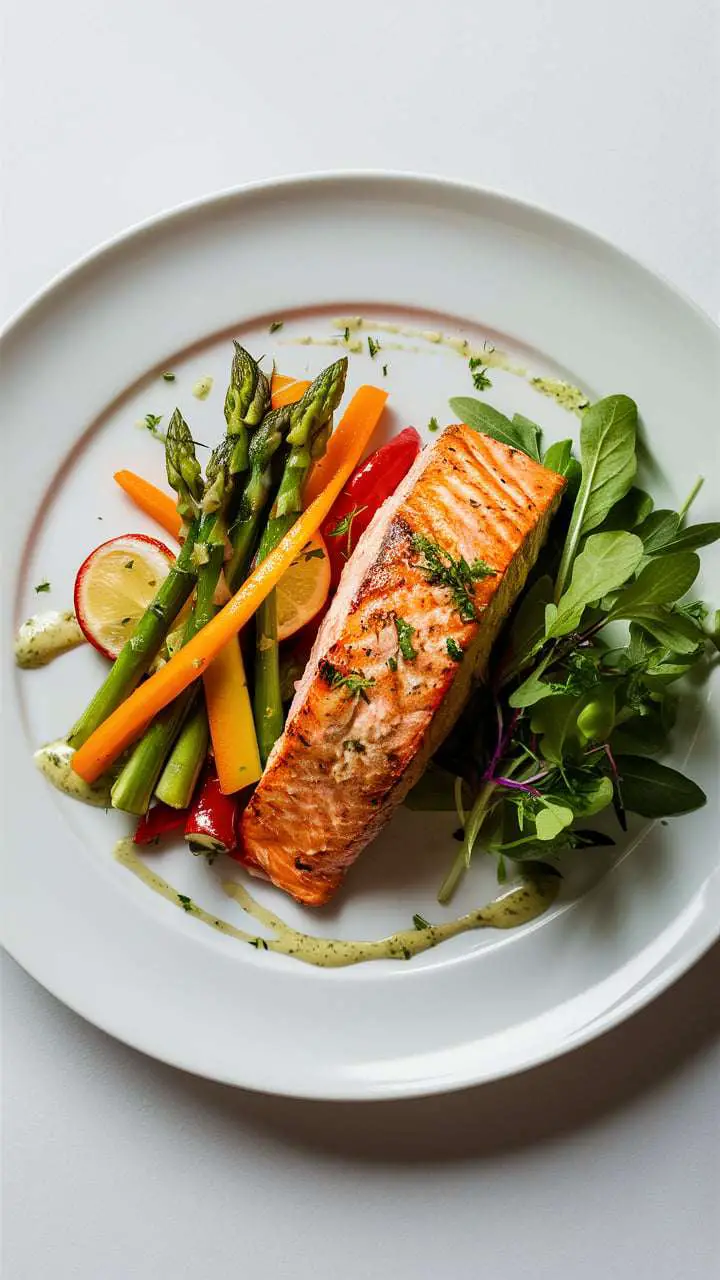Proper nutrition for pregnant women is vital for the health and well-being of both the mother and the growing baby. But with so much information at our disposal, it’s simple to become a victim of myths and false beliefs about diet during pregnancy.
There is often confusion among pregnant mothers on what foods to eat and how much is actually necessary. Illusions such as the “eating for two” fallacy and the notion that all fish should be avoided might keep expectant mothers from obtaining the vital nutrients they need.
Maintaining a balanced and healthful diet during pregnancy requires knowing the reality behind these myths.
We’ll dispel some of the most widespread misconceptions around prenatal nutrition in this blog article and offer practical, scientifically supported advice to make sure you and your unborn child receive the nutrients required for a happy, healthy pregnancy.
Myth 1: You Need to Eat for Two:
Pregnancy myths abound, one of which is that you should eat twice as much since you are “eating for two.” Although your body needs more nutrients when you’re pregnant, this doesn’t mean you should consume twice as many calories.

In actuality, especially in the later weeks of pregnancy, your baby’s nutritional needs can be satisfied with only a slight increase in calories. Most women don’t require any extra calories during the first trimester.
You might require an additional 300–350 calories per day by the second trimester, and an additional 450 calories per day by the third trimester. Nutrient-dense diets that include vitamins, minerals, and proteins necessary for embryonic development should supply these calories.
Overeating in the belief that you need to “eat for two” can lead to excessive weight gain, which increases the risk of complications like gestational diabetes and high blood pressure. Instead, concentrate on eating a well-balanced diet that is high in fruits, vegetables, lean meats, and complete grains.
Proper nutrition for pregnant women should prioritize quality over quantity, ensuring that every calorie is packed with essential nutrients to support a healthy pregnancy without unnecessary weight gain.
Myth 2: Cravings Mean Your Body Needs a Certain Nutrient:
It’s common for pregnant women to experience cravings for specific foods, and a popular belief is that these cravings indicate a nutritional deficiency. For instance, it is believed that a yearning for pickles or chocolate indicates a deficiency in sodium or magnesium.
Research indicates that cravings during pregnancy are not really caused by a desire for particular nutrients, but rather are more likely to be driven by hormone shifts, emotional variables, and cultural expectations.
Although cravings are a common aspect of pregnancy, they are not always a reliable sign of a nutritional need. In actuality, some cravings might actually encourage bad eating practices, such as consuming an excessive amount of processed or sugary meals.
It’s critical to pay attention to your body’s needs while also making sure that your diet is still wholesome and well-balanced. If you’re craving something unhealthy, try to find a healthier alternative that satisfies the craving without compromising your diet.
For proper nutrition for pregnant women, focus on maintaining a well-rounded diet filled with essential vitamins and minerals. If you suspect that a craving might be related to a deficiency, it’s best to consult your healthcare provider rather than relying on the craving itself. A balanced approach will ensure that both you and your baby get the nutrients you need for a healthy pregnancy.
Myth 3: Avoid All Fish During Pregnancy:
A common myth surrounding pregnancy is that all fish should be avoided due to concerns about mercury contamination and other potential toxins. Although it is true that some fish have high mercury content, which might damage a developing baby’s nervous system, it is needless and even harmful to avoid all fish.
The development of the fetal brain and eyes depends heavily on omega-3 fatty acids, which are abundant in fish, particularly fatty fish like mackerel, salmon, and sardines. Selecting fish with minimal mercury levels and high levels of essential elements is crucial. Shrimp, salmon, tilapia, and canned light tuna are safe choices.
High-quality protein, omega-3 fatty acids, and vital vitamins like vitamin D are all found in these fish and are important for the mother’s health as well as the development of the unborn child. Pregnant women should eat two to three portions of low-mercury fish each week, according to FDA recommendations.

Completely avoiding fish can result in missing out on these important nutrients. A balanced approach to nutrition for pregnant women should include fish, as long as they are chosen wisely and consumed in moderation. By selecting safe, nutrient-rich fish, pregnant women can support their baby’s development while minimizing risks associated with mercury exposure.
Myth 4: Pregnant Women Should Avoid All Caffeine:
Many people think that in order to protect their unborn child, pregnant women should cut out all caffeine from their diets. But this is a false impression. While it is true that high caffeine intake during pregnancy may raise the chance of problems, such as low birth weight or miscarriage, most medical professionals believe that moderate caffeine consumption is safe.
Pregnant women are advised by the American College of Obstetricians and Gynecologists (ACOG) to limit their daily caffeine intake to no more than 200 mg, or about one 12-ounce cup. Caffeine can also be found in tea, chocolate, and some soft drinks in addition to coffee, so it’s important to keep an eye on your daily intake overall.

Completely avoiding caffeine is unnecessary, and moderate amounts can still fit within a healthy pregnancy diet. For those concerned about their caffeine consumption, it’s a good idea to balance it with plenty of water and other hydrating beverages.
Proper nutrition for pregnant women involves moderation in all things, including caffeine. Pregnant women can enjoy their favorite cup of coffee or tea in limited amounts without compromising their health or their baby’s development, as long as they stay within recommended guidelines and make mindful dietary choices.
Myth 5: All Prenatal Supplements Are the Same:
Many people assume that all prenatal supplements are identical, leading to the belief that any brand or type will provide the same benefits. This is a myth, though. The types and quantities of vitamins and minerals included in prenatal supplements might differ greatly.
Some might not include essential nutrients, while others might provide more than is required. The best prenatal vitamin for you will depend on your diet, pregnancy stage, and individual health demands.
To prevent neural tube abnormalities, for instance, certain supplements may have higher quantities of folic acid, and others may contain more iron to help prevent anemia. Not all prenatal vitamins include omega-3 fatty acids, particularly DHA, which are crucial for the development of the embryonic brain.

Furthermore, not all supplements will provide enough calcium or vitamin D, two essential nutrients for healthy bones. It’s important to recognize that prenatal supplements are meant to complement, not replace, a healthy diet. Proper nutrition for pregnant women involves getting most nutrients from whole foods, while supplements fill any gaps.
Consulting with a healthcare provider can help you choose the prenatal supplement that best supports your specific nutritional needs, ensuring both you and your baby receive optimal care.
Conclusion:
Understanding the truth behind common myths is crucial for ensuring proper nutrition for pregnant women. Rather than following misconceptions, it’s essential to focus on a well-balanced diet, appropriate portion sizes, and the right supplements.
Consulting with healthcare professionals can provide personalized guidance, ensuring both the mother and baby receive the necessary nutrients for a healthy pregnancy. By debunking these myths, expectant mothers can confidently make informed decisions about their nutritional needs. Click to learn more.
FAQs:
- How many extra calories should I eat during pregnancy?
You only need about 300-450 extra calories per day in the second and third trimesters, not double the amount of food. - Is coffee consumption safe during pregnancy?
Yes, but limit caffeine intake to 200 milligrams per day, which is about one 12-ounce cup of coffee.
- Do I need to take prenatal vitamins if I have a healthy diet?
Yes, prenatal vitamins ensure you get essential nutrients like folic acid, iron, and DHA that might be lacking from food alone. - Can I eat fish during pregnancy?
Yes, low-mercury fish like salmon and shrimp are safe and provide important nutrients, especially omega-3 fatty acids. - Are cravings during pregnancy a sign of nutritional deficiencies?
Not necessarily. Cravings are more often linked to hormonal changes rather than a need for specific nutrients.
